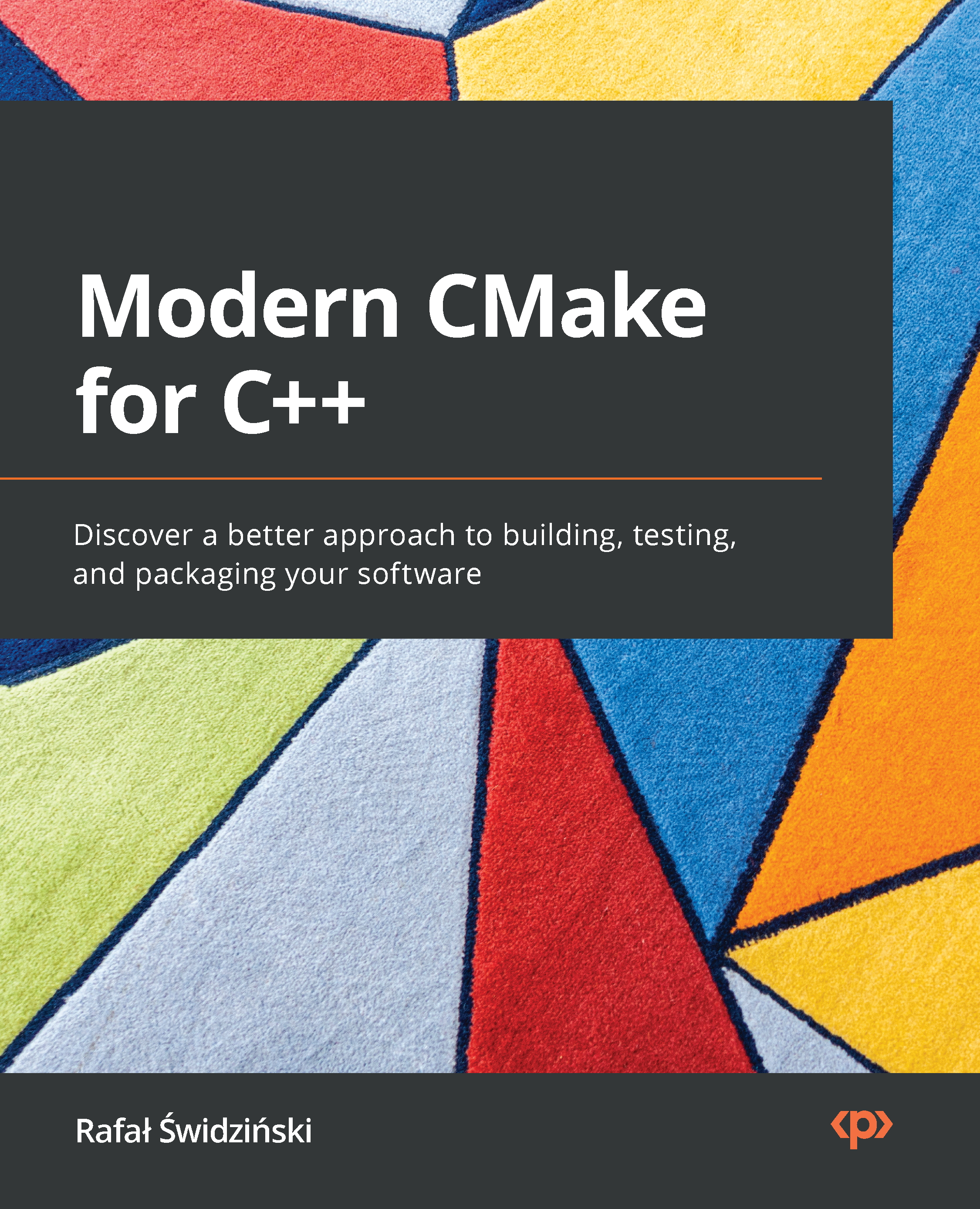-
Book Overview & Buying

-
Table Of Contents

Modern CMake for C++
By :

Modern CMake for C++
By:
Overview of this book
 Free Chapter
Free Chapter
 Sign In
Start Free Trial
Sign In
Start Free Trial

 Free Chapter
Free Chapter
Tenured professionals know that testing has to be automated. Someone explained that to them years ago or they learned the hard way. This practice isn't as obvious to inexperienced programmers: it seems unnecessary, additional work that doesn't bring much value. No wonder: when someone is just starting writing code, they'll avoid writing complex solutions and contributing to vast code bases. Most likely, they're the sole developer on their pet project. These early projects hardly ever need more than a few months to complete, so there's hardly any opportunity to see how code rots over a longer period.
All these factors contribute toward the notion that writing tests is a waste of time and effort. The programming apprentice may say to themselves that they actually do test their code each time they execute the "build-and-run" routine. After all, they have manually confirmed that their code works and does what's expected...
